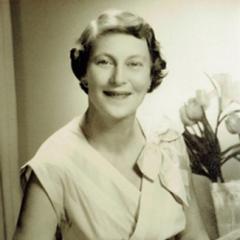
A novel written by a University of Queensland academic about life during Pinochet’s regime in Chile is to be turned into an animated film.
Historias clandestinas written by Dr Sol Rojas-Lizana, from UQ’s School of Languages and Cultures, and her brother Ariel, tells the true story of growing up in a safe house for those opposed to the military regime.
Dr Rojas-Lizana said the book, which is written as a graphic novel from the point of view of children, tells the story of the daily risks that kept the family safe and is a valuable historical resource.
“There is very little known about this side of life in Chile,” Dr Rojas-Lizana said.
“Using a simple and concise language , the story reveals the dangerous social and political climate of the time, and highlights the courage, surrender and love of those who made the decision to resist despite everything.”
“We had an unusual childhood, as my family was very committed in the resistance to the dictatorship, and we had to hide the fact that we had highly wanted people living with us.
”We were in permanent danger, it was a frightening period, but also an intensive and exciting one.
“Historias clandestinas shows how united we were and also the everyday happy moments we had.
“All of the characters (except for me) still live in Chile, the older ones are now retired.
“This book was a ‘coming out’ to many people who never imagined we had that situation - like any coming out situation, it was a great relief.”
The language and illustrations in Historias clandestinas captured the imagination of film maker José María González Oñate who received two grants from the Chilean government to create an animated documentary based on the novel.
“We were already very happy with the outcome of the book, but when I learned that José María wanted to adapt it into an animated documentary, I felt very surprised and humbled.
“It is like seeing a child growing up and becoming an independent adult, I love it and I am very grateful,” Dr Rojas-Lizana said.
Mr Oñate said he always imagined the book as an animation rather than a live-action film.
“There was no doubt from the beginning – if the movie was going to be based on the graphic novel then it should be an animated film,” he said.
The screenplay will feature Dr Rojas-Lizana as one of the characters, but it will be her brother Ariel who will be the main character.
“To choose a main character is surely the most important decision when adapting a novel to the cinema.
“Ariel will be the main character in the film because the movie has two storylines, one in the past, which is what happens in the novel, and one in the present which is the story of the relationship between Ariel and his autistic son,” Mr Oñate said.
Historias clandestinas is already used as a teaching resource in schools and libraries in Chile and Dr Rojas-Lizana teaches it in one of her third year classes in the Spanish program at UQ.
Media: Ms Kellie Colahan, School of Languages and Cultures, +61 7 3365 6247 / k.colahan@uq.edu.au



